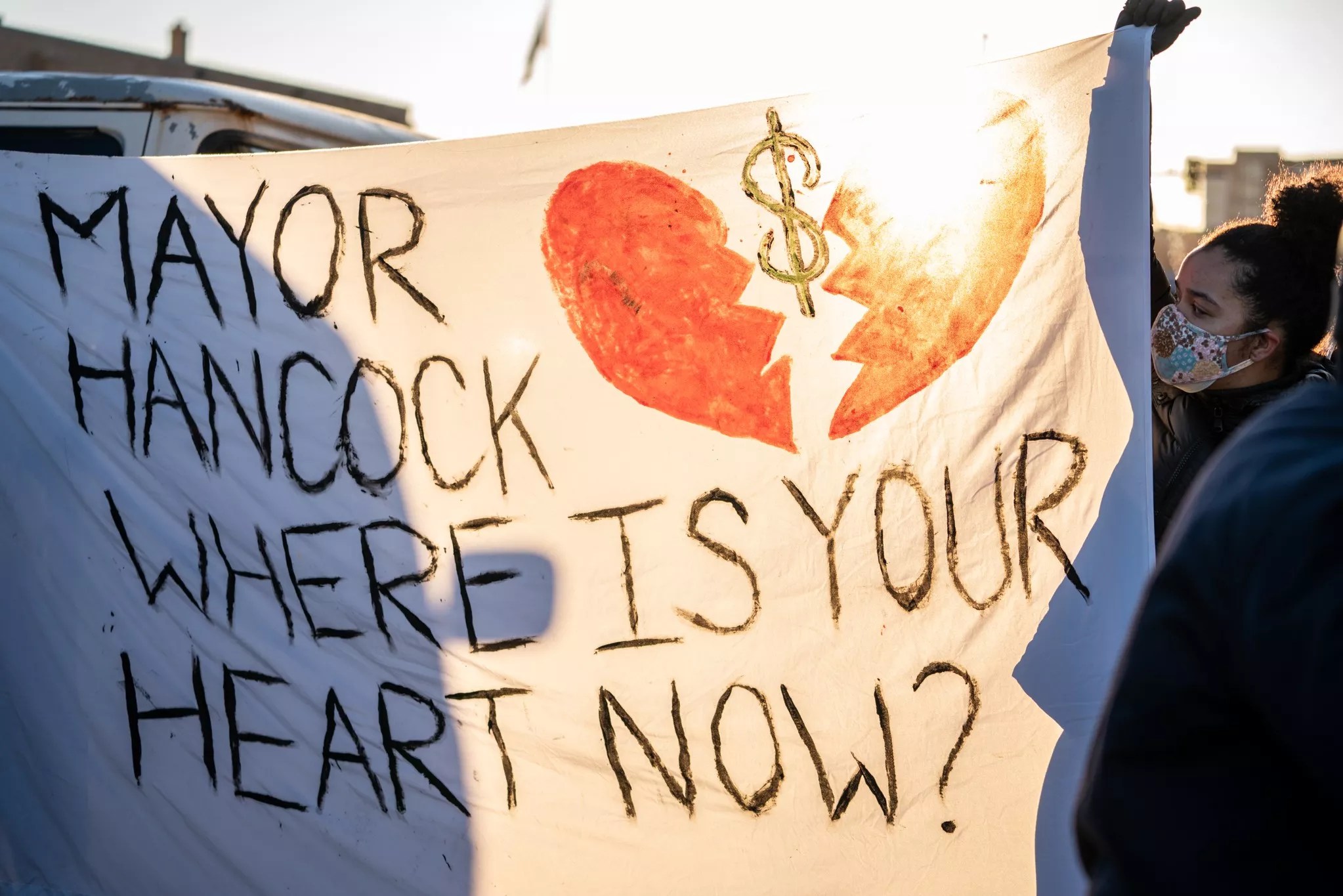
Michael Emery Hecker

Audio By Carbonatix
This month the Colorado Department of Public Health and Environment kicked off a meeting with a public hearing on items not included on the agenda, including the sweeps of homeless camps. A dozen members of the advocacy group From Allies to Abolitionists shared statistics and stories. Here is one:
My name is Elle Naef. I’m a resident of Capitol Hill.
I grew up with a single mother with PTSD and schizophrenia. She never touched drugs in my lifetime; not even beer was allowed around me. We were homeless around seven times, and close to it the rest of my childhood. When I was fourteen, my mom was deemed unfit to care for me, and custody was given to my older brother.
After I left, she spiraled. She lost her home and was ticketed for living in a car, again for the car being uninsured, and once more for abandoning the car when she was left with no other choice.
I used to sneak away from school during lunch to track her down and make sure she was still alive. Luckily, she had friends in her community who vowed to help keep her safe – and safety is something that I’m sure many like her have ripped from them after each of your sweeps.
Soon enough, she was arrested. First for unpaid tickets, then for calling the police on a fight and, once she finally snapped, for walking around naked on a hot summer day. Later, I asked her why she’d done it, and she said, “Honey, once you’re ignored enough, you really start to believe you’re invisible.” Not once during all of these encounters was she offered help, not even an introduction to someone besides a police officer.
When I was nineteen and living on my own, I lost touch with her for a while. Eventually, I got a call from a hospital in Iowa saying my mom was found unresponsive in a stranger’s driveway. They couldn’t tell the last time she’d had food or water.
I don’t know how she got to Iowa but I’m glad she did, because at sixty years of age she was finally able to receive help – and she had to leave Colorado to do it. Now she’s medicated and financially stable, and I get to have a mom and her grandkids get to have a grandmother. That’s no thanks to this state’s policies or services. In fact, she attests that had she stayed in Colorado, she likely would have been dead by now.
I’d like you to reflect for a moment on the fact that far more resources were used keeping her on the streets than getting her the bit of stability she needed to completely change the trajectory of her life and that of my family. Police, jails, hospitals…out of our countless encounters with the system, we were only offered punishment. I’d like you to also reflect on the fact that this is the story for many of these people. We might see them strolling around in a state of delirium, but how often do we pause to think of the horrendous things that have happened to drive them to such a state? Horrendous things that we’ve done to them.
Humans are naturally community-oriented. These people – yes, people – have formed bonds for safety, mental well-being, one tiny bit of joy in their day. They’ve spent every moment finding ways to make it through another night, only for it all to be violently snatched away from them. The worst part is that many organizations like the ones that saved my life growing up are presenting solid solutions to your “health concerns” – and are left on their knees, begging the city for support when in a just world you’d be the ones on your knees thanking them.
End the sweeps and redirect your resources to humane sanitation now. Property over people is not a sustainable model.
Westword regularly published op-eds and essays on matters of interest to the community on weekends. Have one you’d like to submit? Send it to editorial@westword.com, where you can also comment on this piece.